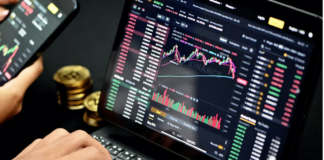Brazilian meat processing firm, JBS S.A., which has been criticized for its alleged role in the unlawful deforestation of Amazon forest, has indicated that it will use blockchain technology in creating a unique solution to this problem.
JBS using a blockchain traceability system to monitor indirect suppliers
A report from Reuters on September 23 indicated that JBS was planning to launch a blockchain traceability system for their meat supply chain. The blockchain-based system aims at ensuring the company doesn’t purchase livestock from farms that have cleared trees in the Amazon rainforest. With pressure mounting from investors and environmentalists, the company has promised to combat deforestation by 2025 by monitoring its whole supply chain.
In the past, the meat processor has been monitoring the final link of its supply chain, which implies that around 50,000 Brazilian ranches doing business with the company might have received their livestock from suppliers destroying Amazon. In July, The Guardian reported that JBS might have been doing business with at least one supplier sanctioned for Amazon’s deforestation to increase their pasture space.
JBS commits 250 million reais to protect Amazon
Following the reports, the company’s CEO, Gilberto Tomazoni, promised to monitor indirect suppliers using a blockchain tracing system. He said that no company currently monitors indirect suppliers, and they are planning to leverage tech to fill the gap. JBS will start monitoring from next year in the Mato Grosso state, which has accounted for more than 31% of the forest’s deforestation in the past two decades.
The company announced a range of environmental actions on Wednesday as part of its 1 billion reais to fund social-economic developments in the Amazon. JBS plans to invest 250 million reais up to 2025, which will add another 250 million reais by 2030. There are third-party companies expected to join the initiative with investment growing up to 500 million reais.
Besides Brazil, JBS has also developed tracing systems that offer data on their meat suppliers for subsidiaries outside the country.















